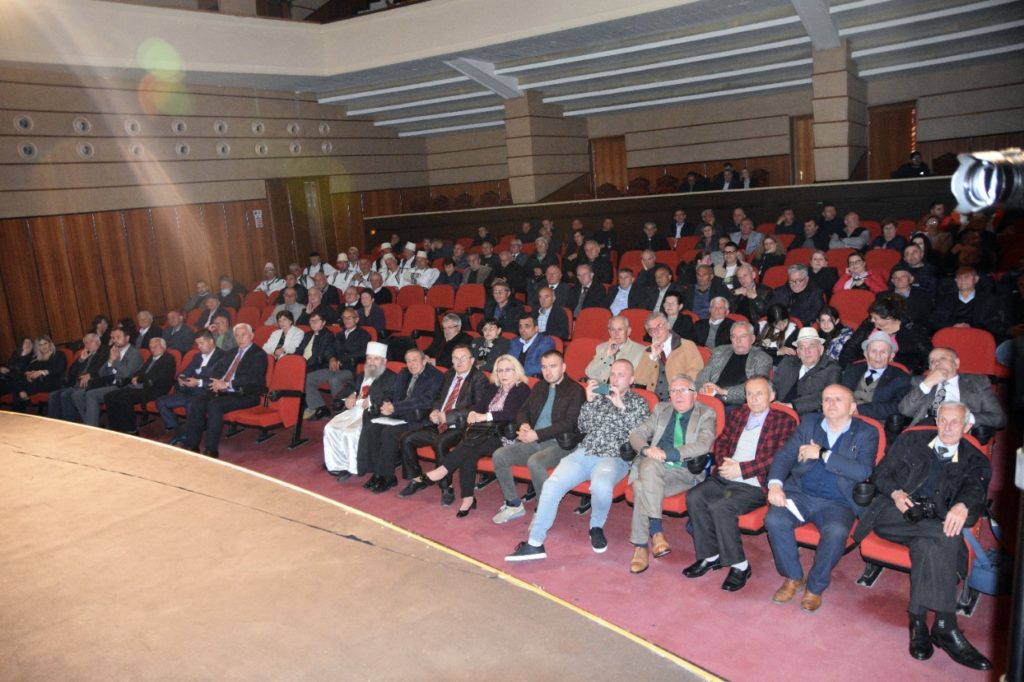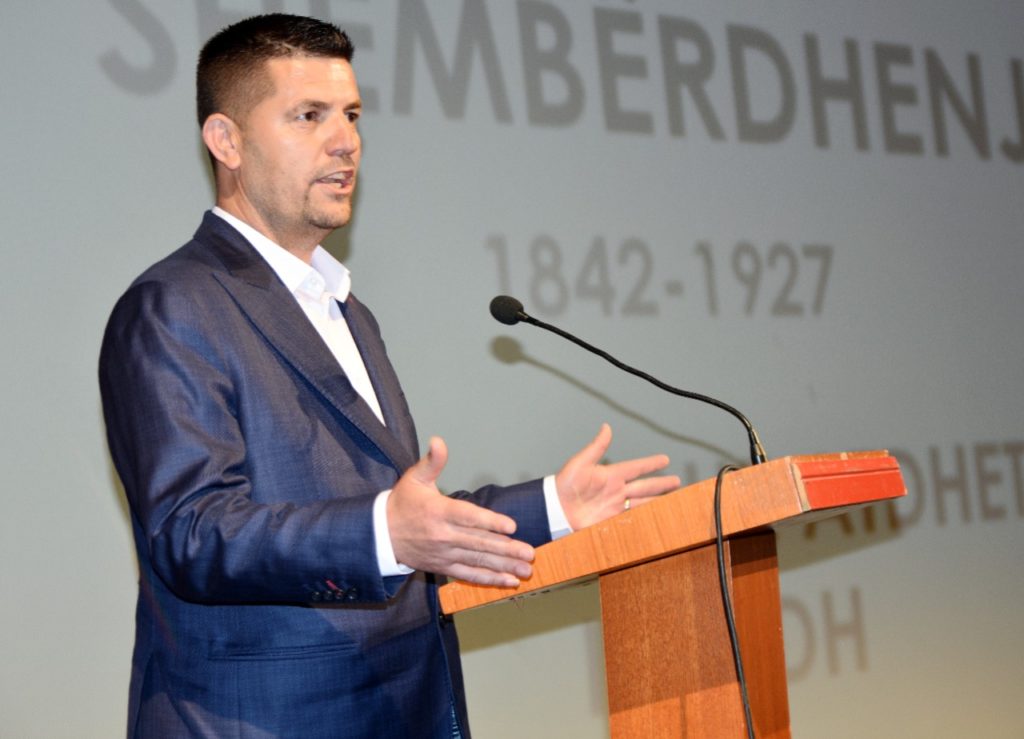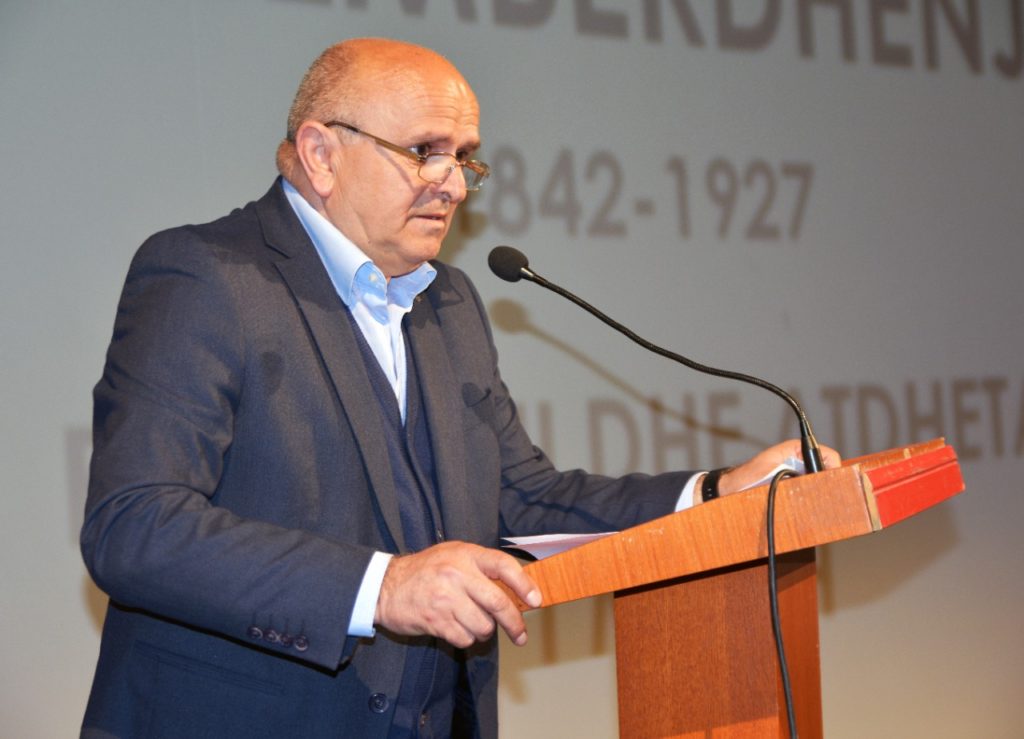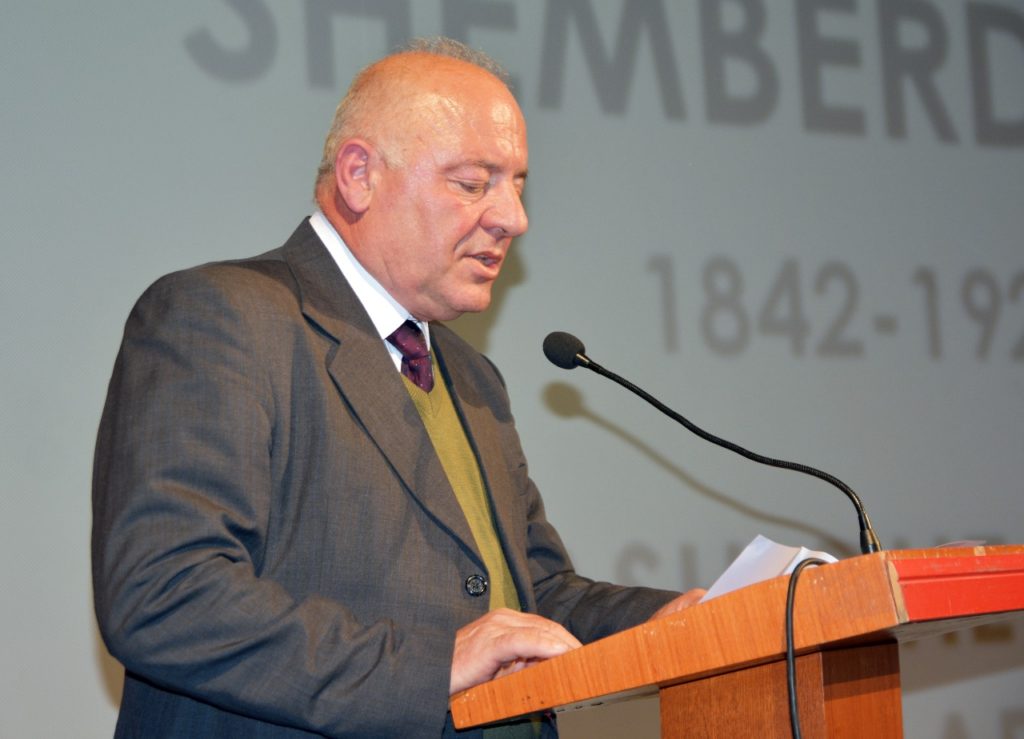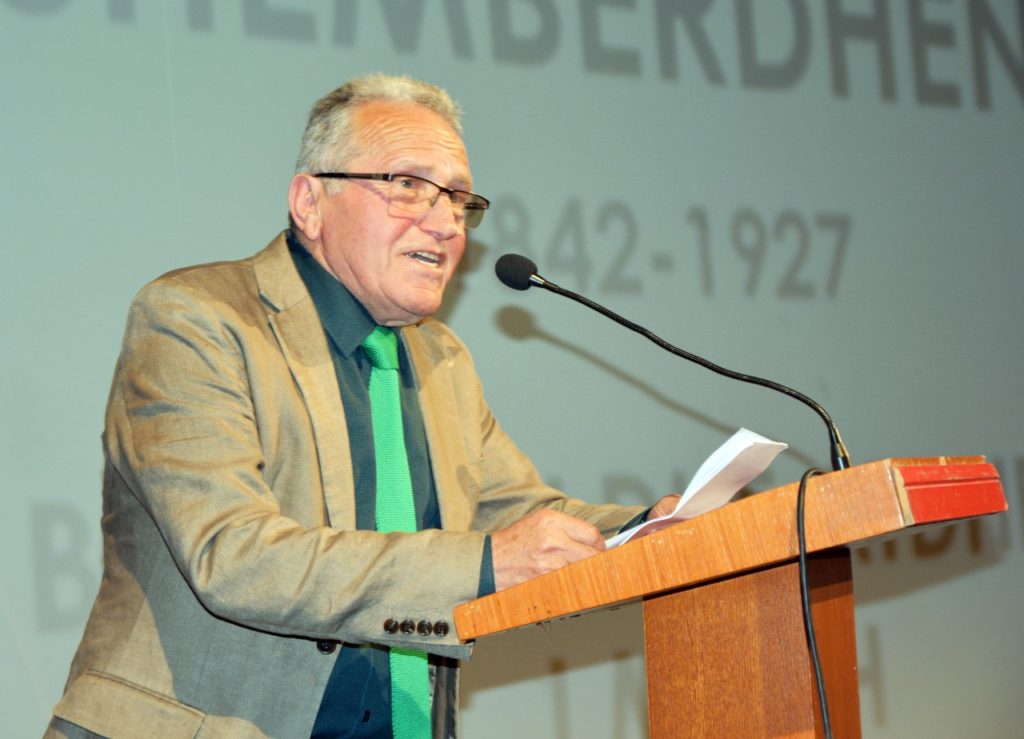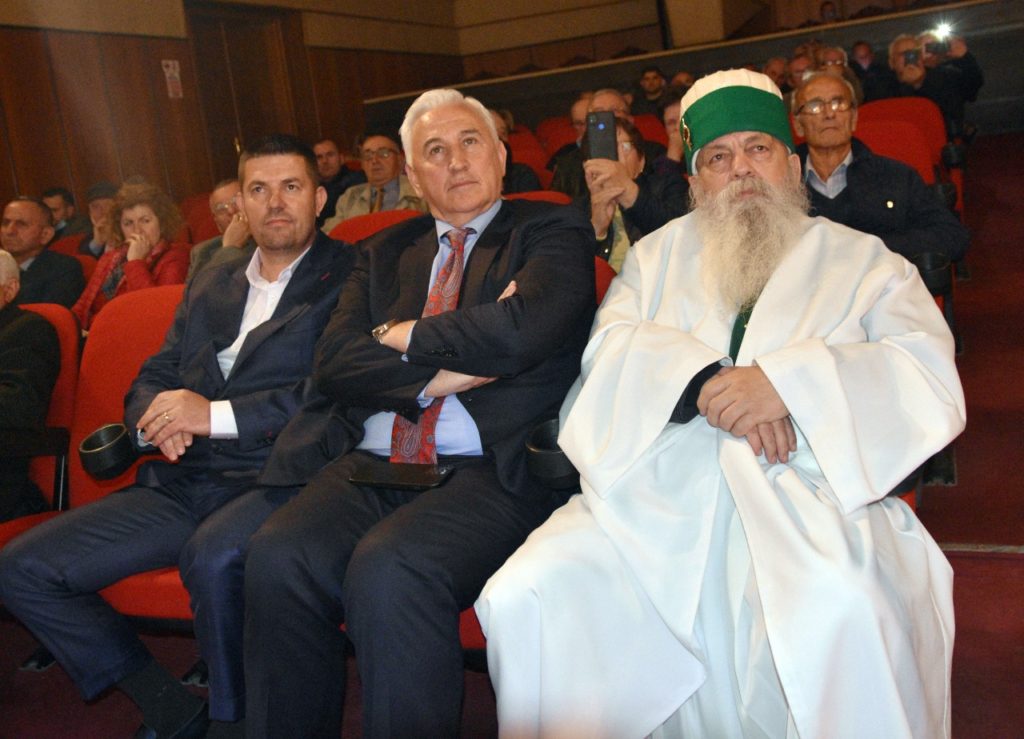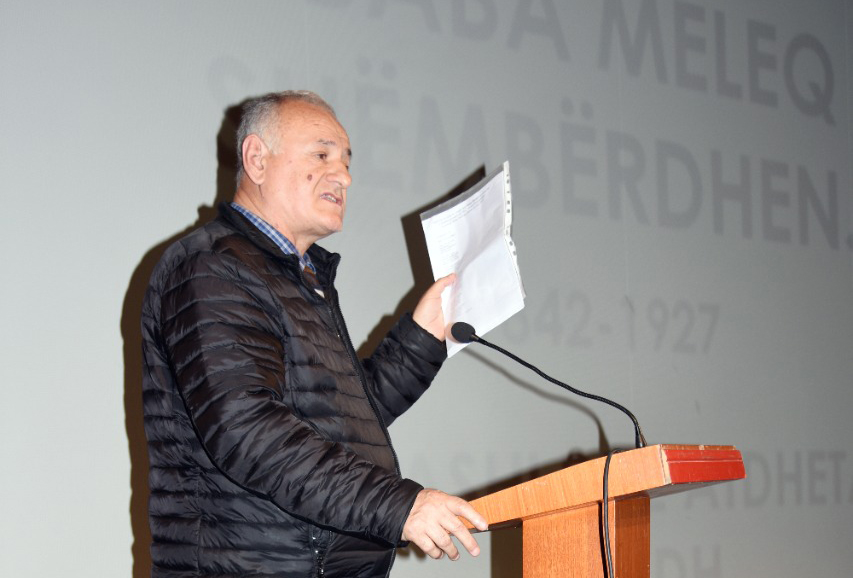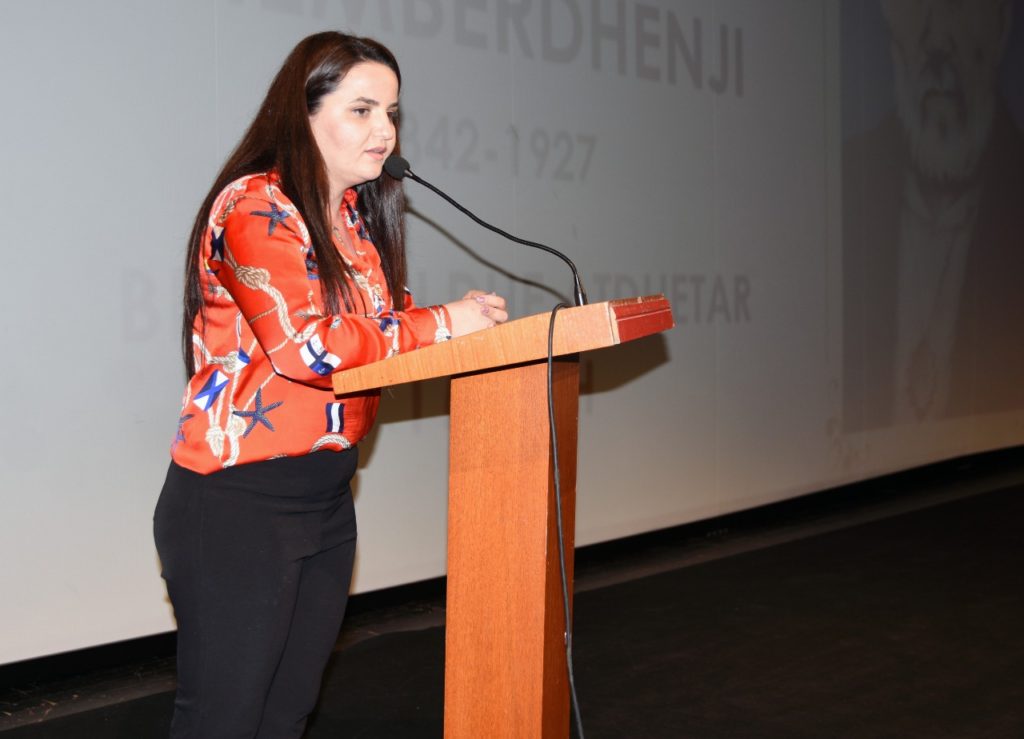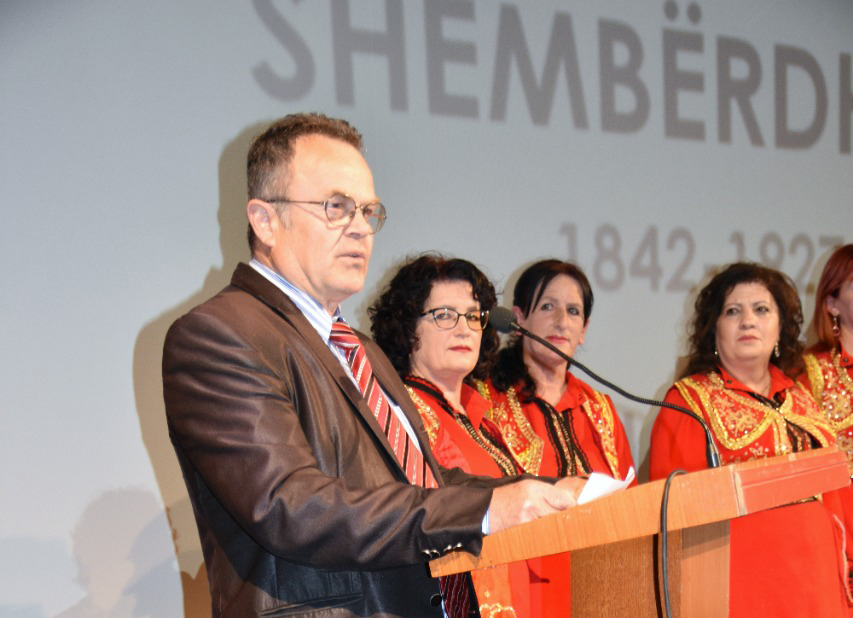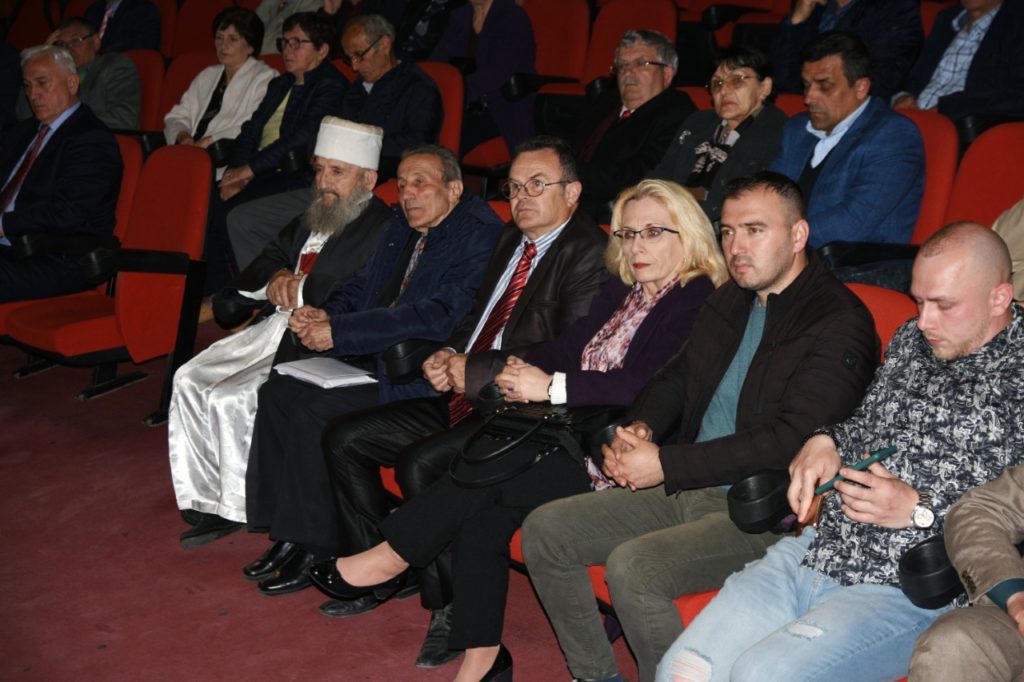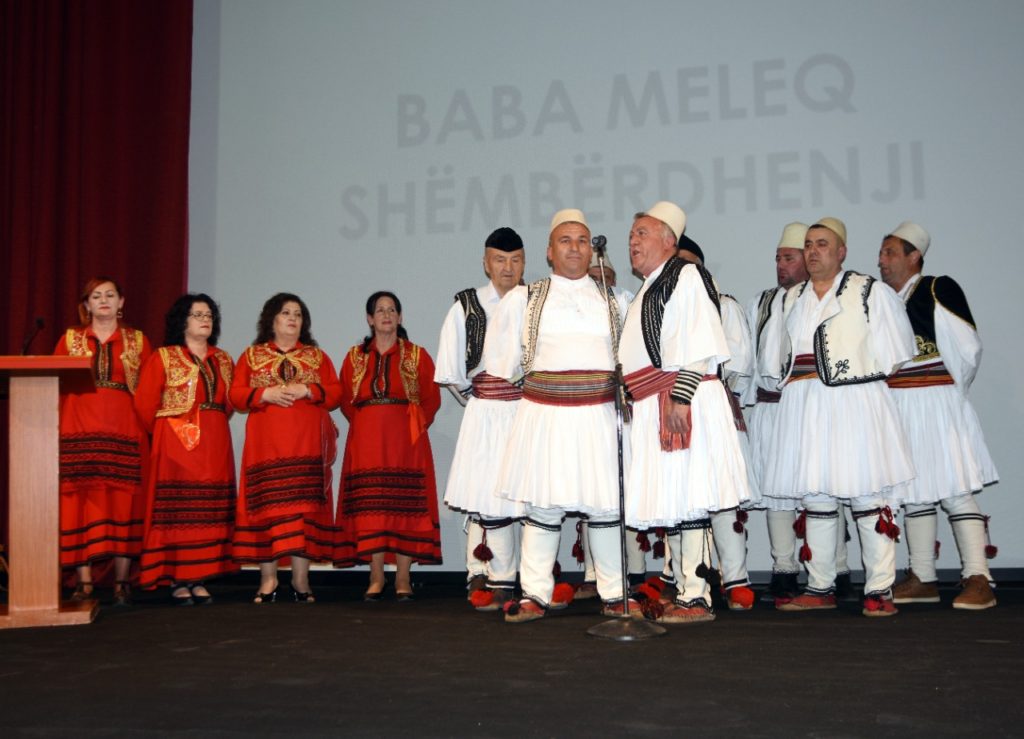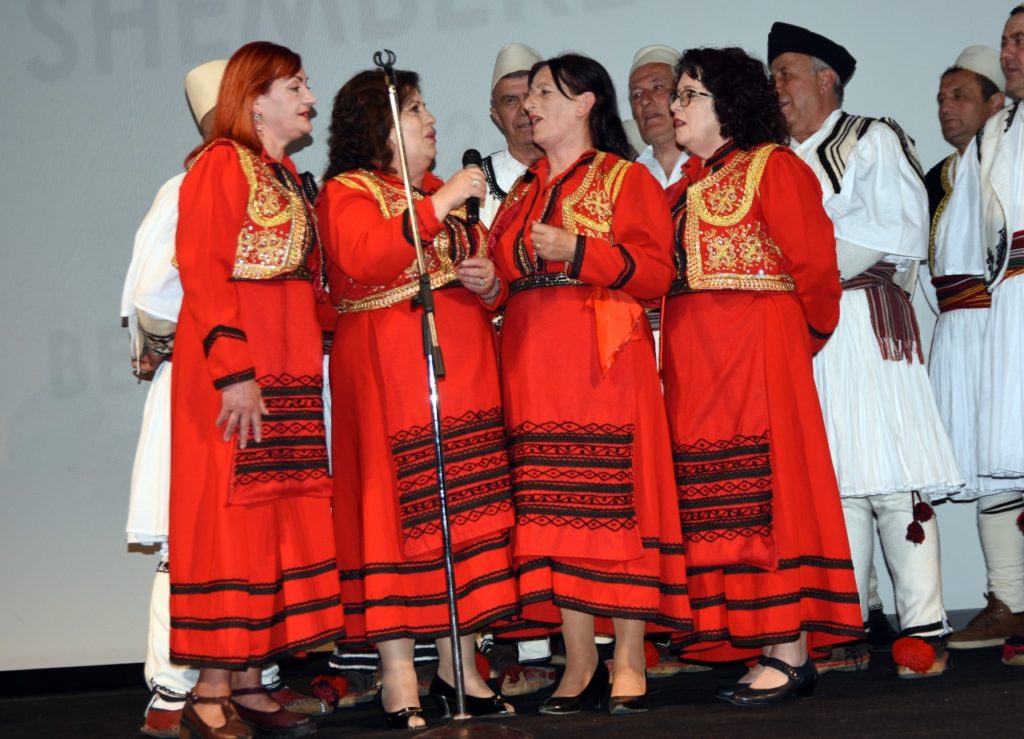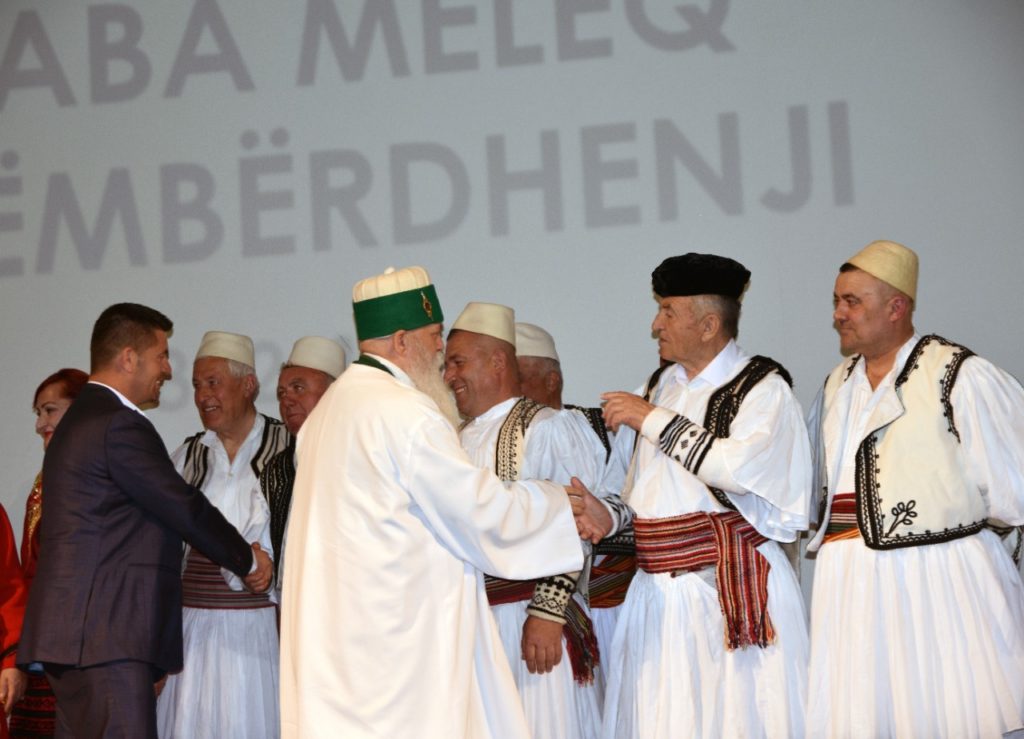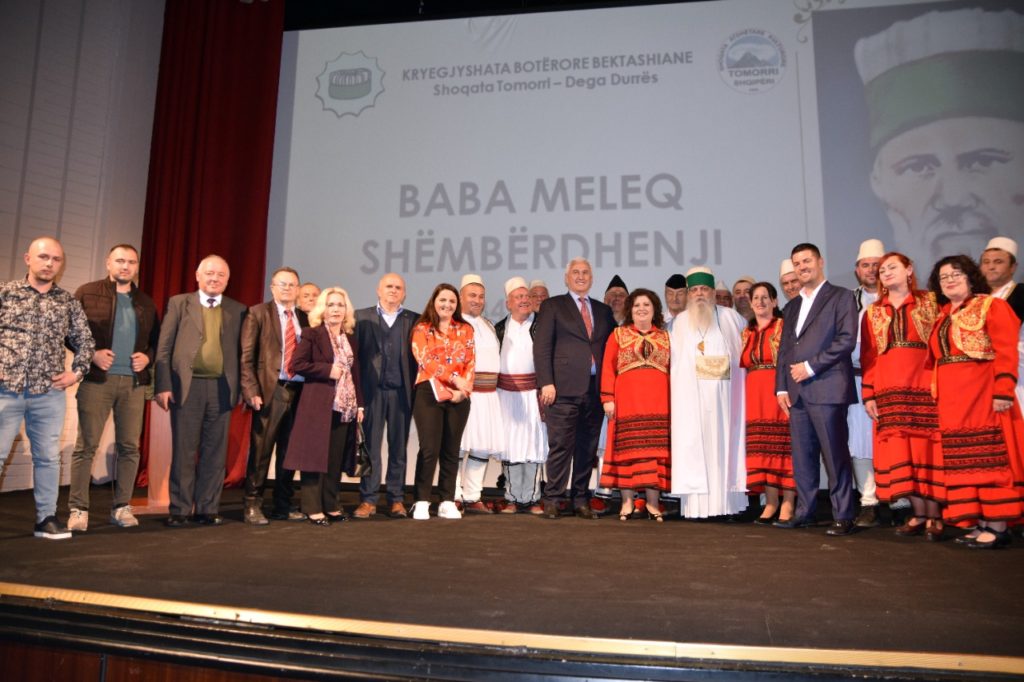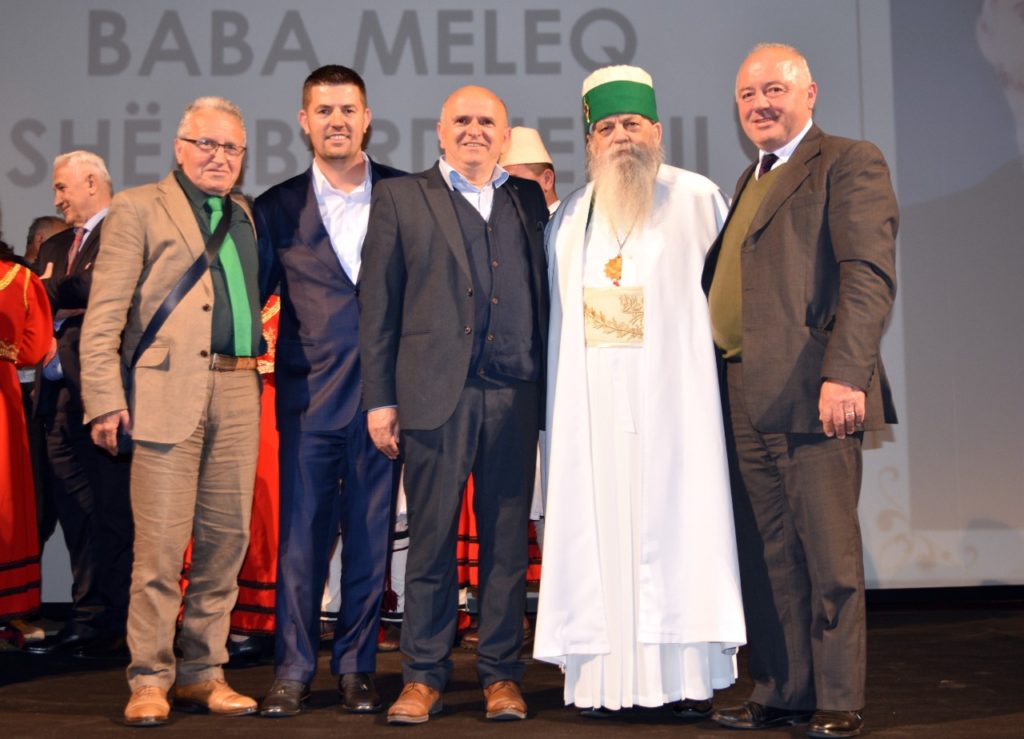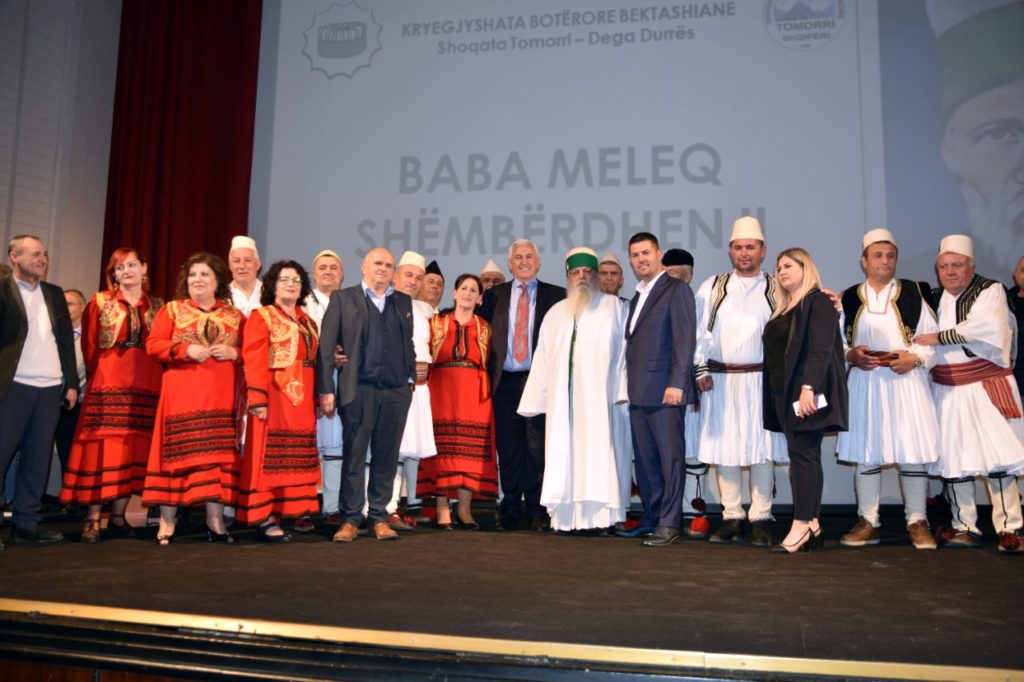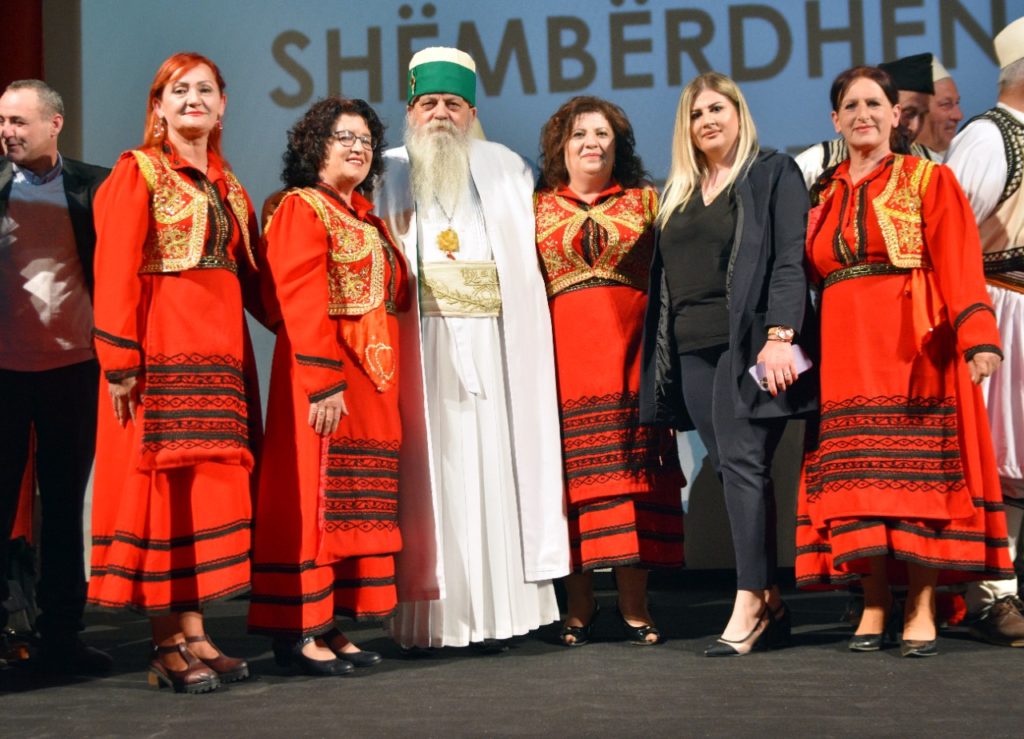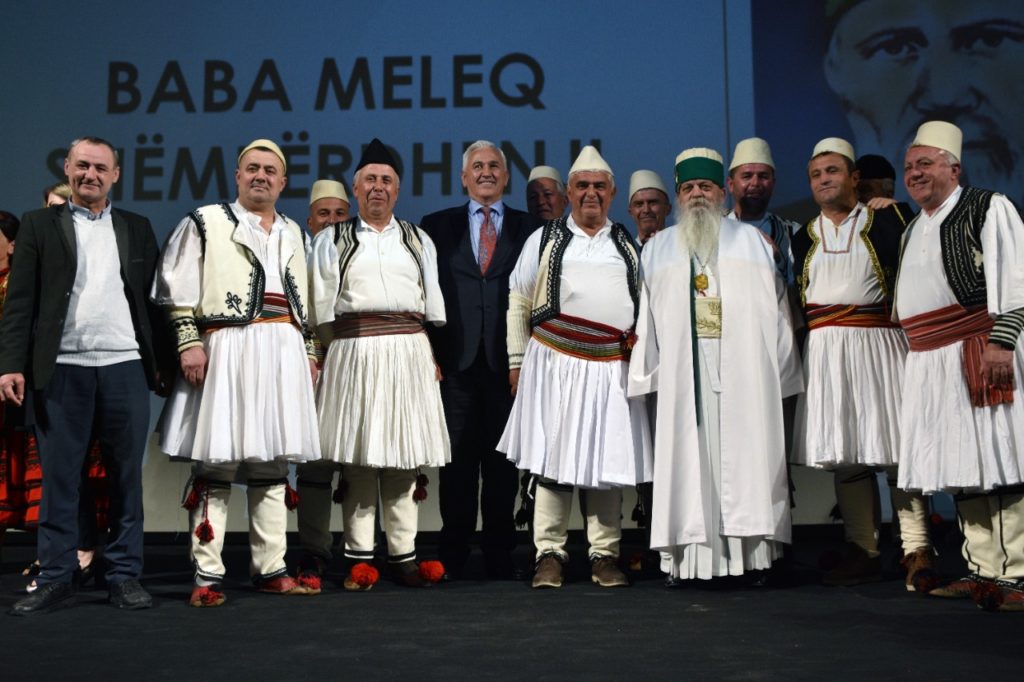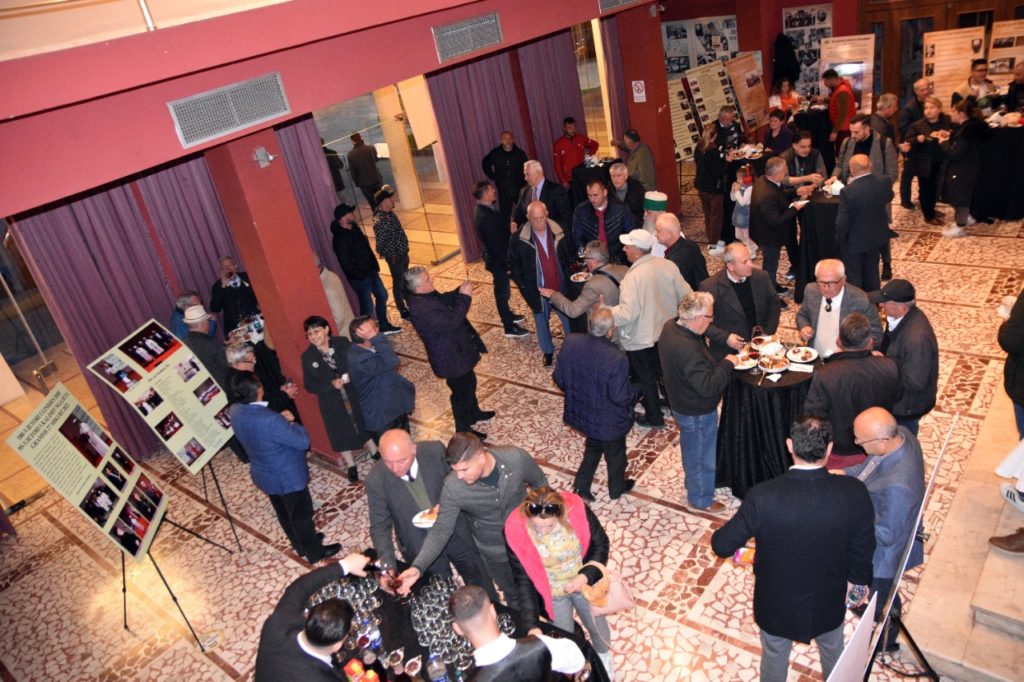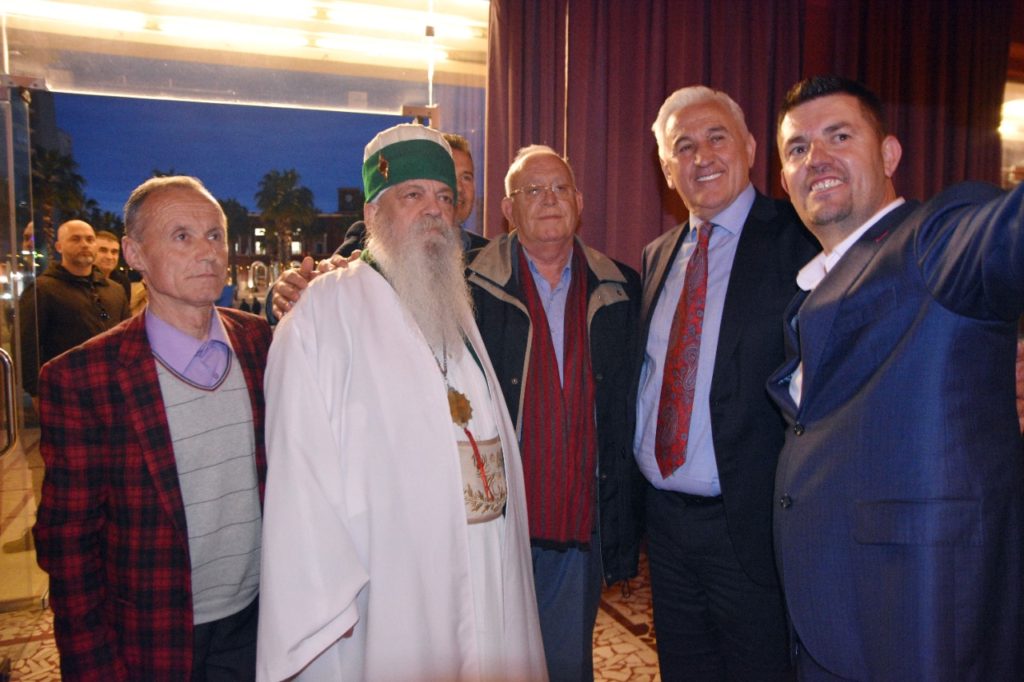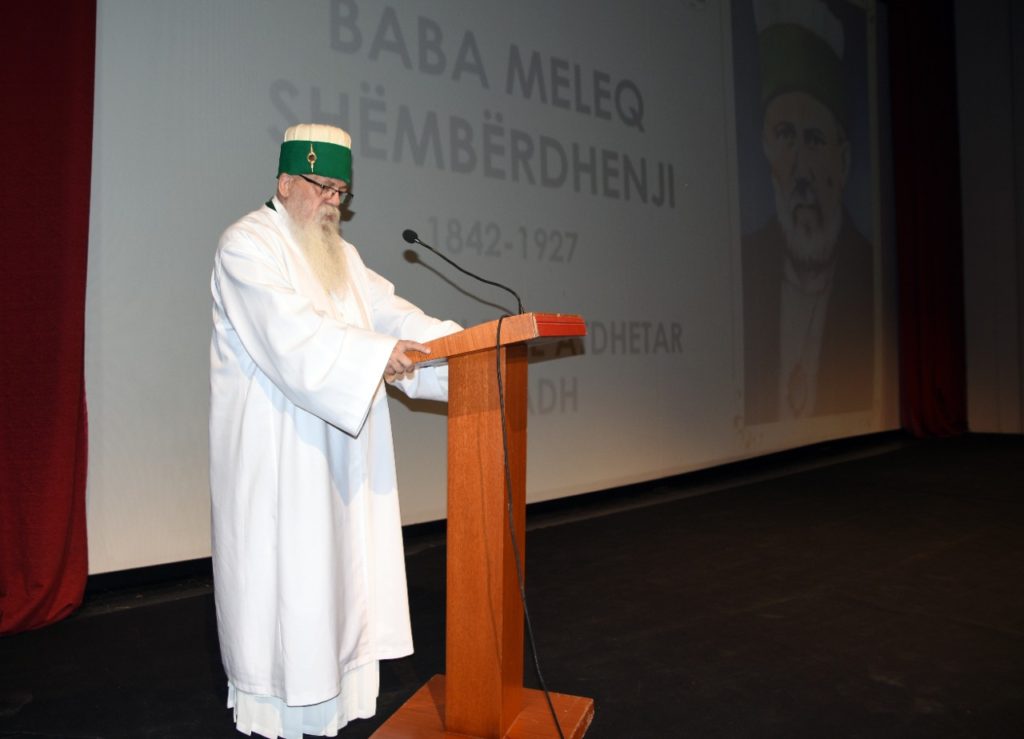
Through a well-organized activity, on the evening of Friday, April 8, 2022, the Bektashi communities of Skrapar and Gramsh, commemorated in Durrës, the 180th anniversary of the birth and the 95th anniversary of the death of father Meleq Shëmbërdhenji. This activity was organized by the Bektashian Holy See, under the care of the Bektashian World Grandfather, His Holiness, Haxhi Dede Edmond Brahimaj, in cooperation with the Patriotic Cultural Association "Tomorri", headed by Hajri Nuhu and the Patriotic Cultural Association "Gramshi", with chairman Xhevdet Haxholli. For the many participants from the above regions, from Durrës, who came from Tirana, Kruja, Elbasan and other Bektashi Quarters, in addition to the greetings of religious and local dignitaries, a photographic exhibition about the life and work of the patriotic cleric Baba was prepared and followed. Meleq Shëmbërdhenji, a rich artistic concert by the well-known polyphonic ensemble "Tomorri", prepared by the conductor Rako Paja; a short documentary, dedicated to father Meleq Shëmbërdhenji, evaluations by researchers and historians, as well as poetry interpretations by creators and actors participating in the meeting. In this activity held in the "Aleksandër Moisiu" Palace in the city of Durrës, in addition to many believers and well-wishers, MP Nasip Naço, former MP Spartak Braho, etc. took part... In the span of about a month, after the one held in the city of Gramsh, this was the second activity that was organized for the life, the contribution as a clergyman and patriot, of father Meleq Shëmbërdhenji.
After the national anthem and the greeting of the occasion by Hajri Nuhu, chairman of the Patriotic Cultural Association "Tomorri" and Xhevdet Hoxholli, chairman of the Patriotic Cultural Association "Gramshi", the Bektashian World Grandfather, His Holiness Haxhi Dede Edmond Brahimaj, greeted those present. Among other things, Dede Edmond Brahimaj, announced: "... Dear Clergy and representatives of state and social institutions! Dear Bektash believers and well-wishers, who have come today to the premises of the "Aleksandër Moisiu" Palace of Culture in Durrës, in this commemorative event with the object "Baba Meleq Šëmbërdhenji, great Bektashi and patriot", dedicated to this well-known cleric, within of the 180th anniversary of his birth and the 95th anniversary of his death. On this occasion, as the World Grandfather of Bektashism, with special pleasure I wish and bless all of you present, happiness in your families, health and prosperity, more love, peace and kindness, for unwavering faith in the Great God , in these difficult times we are going through today! A few days ago, we organized such a ceremony in the city of Gramsh, a town where our brother, father Meleq Shëmërdhenji, worked, lived and left his mark. Such activities not only serve to highlight the role of Bektashi clerics, as religious and patriots, in the 8-century journey of this peaceful faith, to appreciate this contribution, but also to embrace the numerical growth of our holy faith. These meetings and rituals that we are organizing recently coincide with a difficult time with unstable economic and social situations in our country and in the wider world, including bloody wars like the one in Ukraine, a fact that makes more necessary is the appeal for more peace and love, for more faith in the Almighty God, for more harmony and brotherly love, for more common efforts, towards a peaceful and normal life.
Baba Meleq Shëmërdhenji, whom we commemorate today, has left a bright mark not only as a cleric in the preaching and expansion of the Bektashi faith, but also as a patriot for the national issue, as a poet, as an ardent contributor to the teaching and spreading of the beautiful Albanian language and the education of generations as a teacher. The role and contribution of this well-known cleric is related not only to Gramsh's territory (where he stayed for 17 years in the Shëmbërdhenji teke), but also to his role in leading important teke and in different countries of the world, where they live the Bektashis.
... Cleric Meleq Tahir Muçi was born in 1842, in the village of Starveckë in Skrapar, in a family with patriotic and Bektashi traditions. There was a mekam in the village, which the whole village frequented and performed religious rituals. On the border with the village of Backë, there was the famous teqe of father Fetah with a history and great activity for the Albanian language. In this church, Meleqi learned about Bektashism. Clergyman Meleq Tahir Muçi, is a participant in the Frashëri meeting in May 1878, he is a collaborator with Naim Frashëri, Jani Vruho, Nuçi Naçi. He took an active part in the years of the League of Prizren, in the organization of this league in Skrapar, together with the patriot Hysen Sevrani. Also, he was a participant in the meeting with all the fathers of southern Albania in Kostrec, in defense of patriotic aspirations. During this period as a dervish in the teke of Frashër and Backa, you could find him everywhere in the movement for the education of young people, learning and writing the Albanian language. This activity caught the attention of the authorities of the time, who arrested him several times. He was an agitator of the Albanian book like no one else in Albania. Archival documents provide data as an activist of the National Renaissance in the matter of Albanian education and culture. In Egypt in 1879, he taught the Albanians there, who gathered around him, in churches and other places. This caught the eye of the Egyptian princes. In 1892, he made a trip to Anatolia, with the help of Sadik Efedi Qesaraka, where he gathered Albanians and taught them Albanian. In 1896, he went to the holy shrine of Merdiven Qojt, in Istanbul, where he secretly united the Albanians and taught them in their native language. At the peak of his maturity, he wrote beautiful poems in the Albanian language. In these poems he melts and becomes one with mysticism, dissolves like the candle in the motto that "There is no religion without homeland". When he left Istanbul in 1898, he settled in the Albanian lands in Manastir, Ohrid and Struga, where he stayed for 2 years, among friends and believers, teaching them.
In 1900, father Meleqi went back to Frashëri teqe, where he wrote and taught. In 1904, he fled Albania and went to Romania, where he was involved in patriotic and national activities. The Turkish government followed him and he was forced to take refuge in the "Shememi Baba" teke, in Fushë. He went to the villages of Kruja, Martanesh, Elbasan, Gramsh where he distributed Albanian primers. In 1910 he went to Bucharest to buy books again, but the war broke out and in 1912, father Meleqi was in Vlora.
...In 1884, when the newspaper "Drita" was published in Istanbul, Father Meleqi became a collaborator of Naim and Sami Frashëri, Jani Vreto and others, during which time he wrote and published many poems.
His religious sermons are sensitive in every world. He worked in the tekke of Frashër, Backa, and for 17 years led the tekke of Shëmbërdhenji in Gramsh with full religious and patriotic activity. He was also a traveling teacher, for the spread of the Albanian language in Skrapar, Berat, Përmet, Korçë, Kolonje, Elbasan, Martanesh, Krujë, Ulcinj, Manastir, Kosovo. The Albanian colony in Cairo has charged him with many tasks for Albania. Robert Elsie writes in the history of Albanian literature: "Shëmbërdhenji is considered one of the best Bektash poets of the period. He was also a friend and admirer of Naim Frashër, whom he called "Heart of Albania, stone of wisdom, torch of childhood, saint of humanity".
Baba Meleqi had in time prepared two volumes of poems. He had left one in the tekke of Shëmbërdhenji, which, as is known, was burned by the Greek Andarts in 1914, and the other in the tekke of Turan, at father Zylfua's. Only in 1933 was it managed to be published under the auspices of dervishes Rizai in Leskovik tekke. You had taken many articles for publication in Bucharest, Romania, and their fate is unknown. Father Meleqi's house became a place of worship, inside and outside the country, the Kosovar, Macedonian, Montenegrin, Cham brothers and wherever he worked. Like many revivalists, he worked tirelessly for Albanian education and culture because it was the most important and necessary tool for strengthening national consciousness, for unity and brotherhood, coexistence and religious harmony, against division and anti-Albanian propaganda. About the death of father Meleqi, the newspaper "Korça" on March 5, 1927 writes: "Father Meleku, who was the father of the Shëmbërdhenji teke in Skrapar and who was one of the associates of Naim Frashëri, a former dervish in the Frashëri teke, passed away on February 25, 1927 in the town of Shëmbërdhenji in 85 years. May God feel the condolences to the closeness and friends"! Believers during the war against religion preserved the remains of father Meleqi and they were placed in the cemetery of the city of Çorovoda, Skrapar. Finally, in June 2010, his remains were taken to Shëmbërdhenji cemetery where he served for 17 years. The work and life, the efforts of father Meleqi for the development of education, language and Albanian writing was an inspiring example for all patriots inside and outside the homeland. For his work, he was decorated with the medal "For patriotic activity". He also received the title "Deserved Teacher". Dear brothers and sisters! Commemorating today this cleric, patriot and teacher, we highlight the historical role of the Bektashian clerics, who, with faith in God, have done for centuries, are doing and will do everything, according to the well-known motto of Bektashism: "Without homeland, there is no religion !!". The video-projector prepared and which we follow today, the documentary "Life and work of father Meleq Shëmbërdhenji" and the exhibition about the religious and patriotic activity of this cleric, are an assessment that we believers make of the Bektashi clerics, something that has been and will be to remain in our tradition as the Bektashian Holy See.
In closing, I want to thank the leaders of the Patriotic Cultural Association "Tomorri" for the evaluation and cooperation with us, you present here and all other contributing factors.
At the same time, I wish you the blessed month of Ramadan! Goodness and prosperity in your families! God bless you all…”
Next, after watching the documentary film dedicated to father Meleq Shëmbërdhenji, the publicist Zylyftar Hoxha and the poet Islam Hasani spoke. After the rich repertoire of the polyphonic group, the photographic exhibition dedicated to the life and work of this well-known cleric was followed with great interest. While at the end, the warm Bektashi meeting continued with the cocktail served in the lobby of the "Aleksandër Moisiu" Palace.
Prepared by:
Nuri CUNI
Kujtim BORIÇI
Photos: Ardian KOXHERRI
